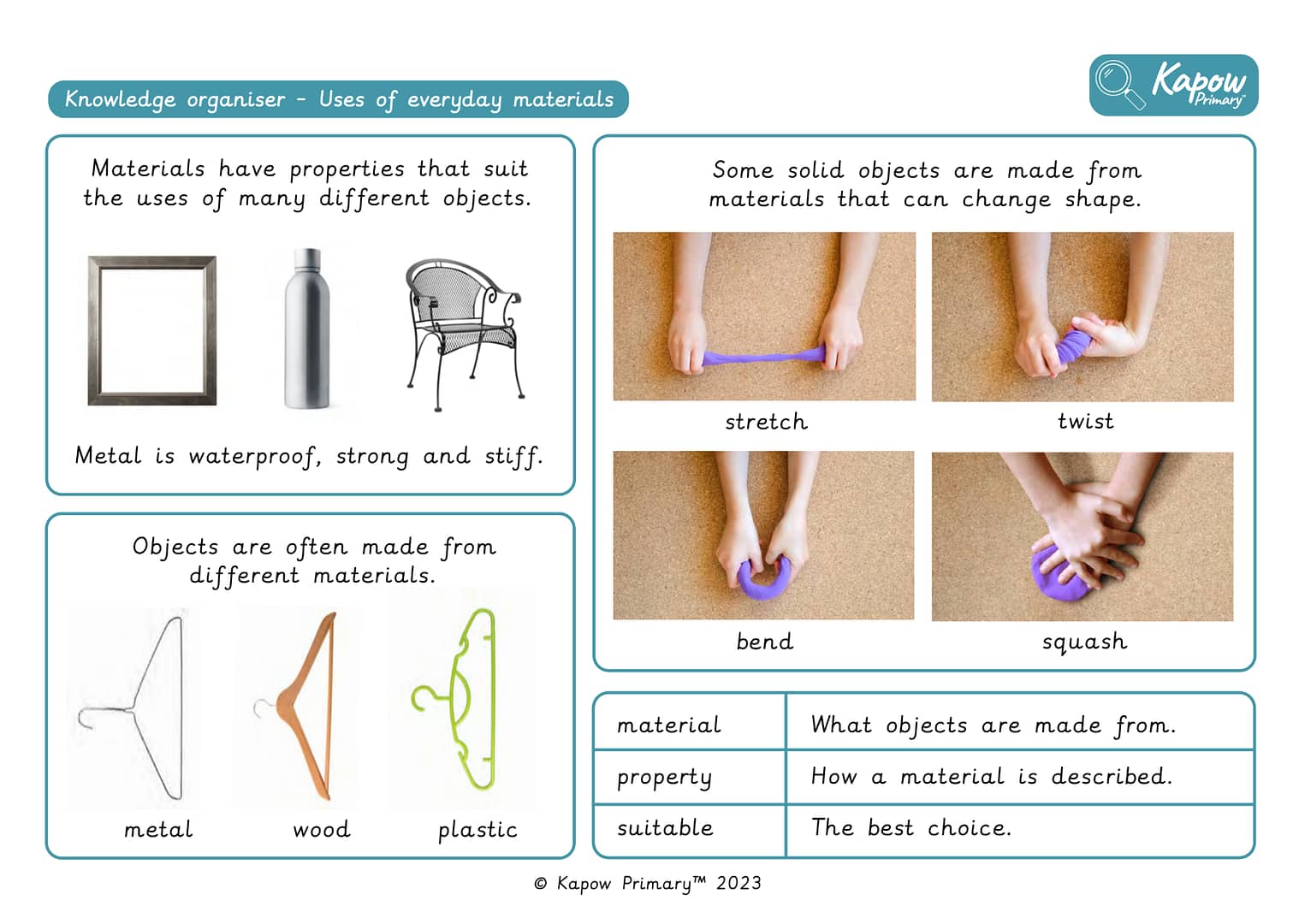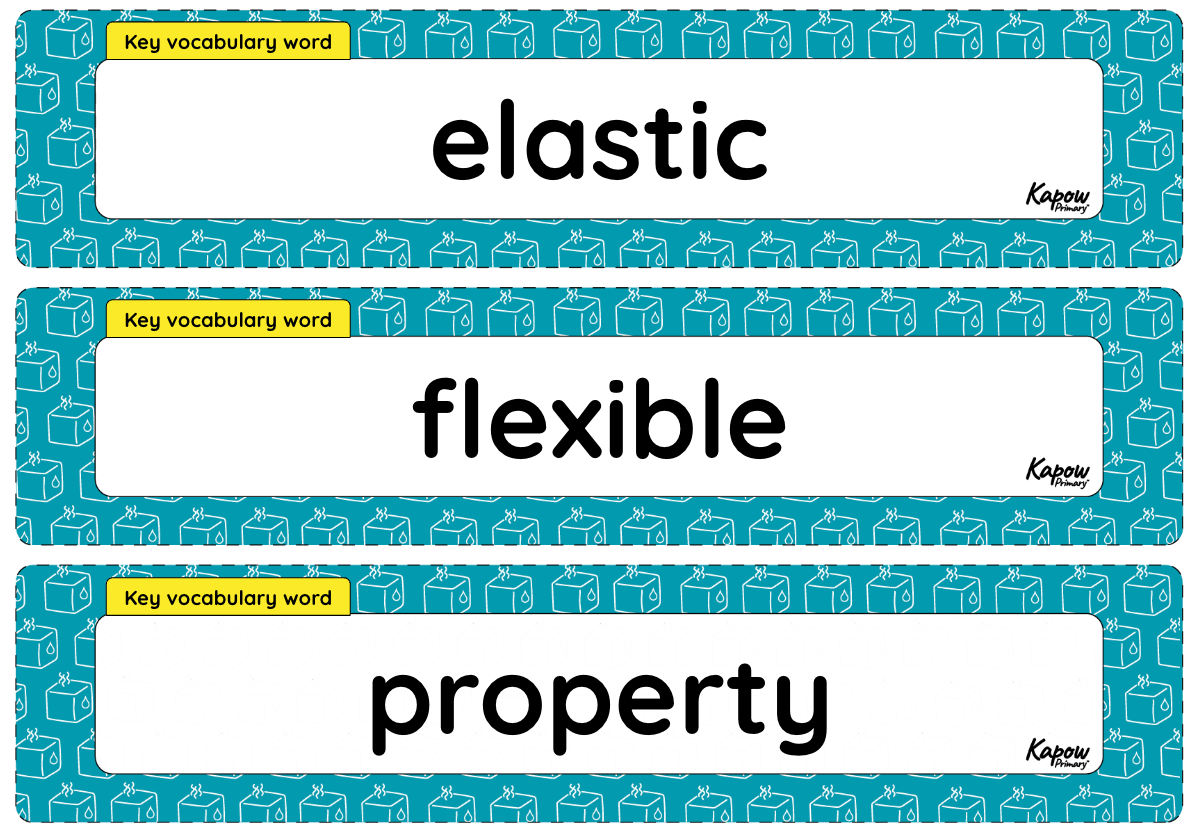Y1/2 (B): Materials: Uses of everyday materials
Comparing the suitability of materials by carrying out tests and recording data.
New statutory RSHE guidance is here. We’re creating our brand new RSE & PSHE scheme ready for September 2026. Learn more
Unit outcomes
Pupils who are secure will be able to:
- Name objects with the same use that are made from different materials.
- Name materials that are used to make objects with different uses.
- Recognise that stretching, twisting, bending and squashing can cause some solid objects to change shape.
- Name properties that make materials suitable for their use.
When working scientifically, pupils who are secure will be able to:
- Measure using non-standard units.
- Recording results in a table.
- Use data to answer a simple question.
- Record results in a block graph.
Please note that Kapow Primary Science lessons are designed to be 1 hour and 30 minutes long to reflect the requirements of a core subject.
Suggested prior learning
Y1/2 (B): Materials: Everyday materials
Get startedLessons
Y1/2 (B): Lesson 1: Objects and materials
Knowledge
- To recognise that objects are made from materials that suit their uses.
Working scientifically
- To recognise that objects can be grouped.
Y1/2 (B): Lesson 2: Which material is suitable?
- To recognise that objects are made from materials that suit their uses.
Y1/2 (B): Lesson 3: Stretch it, twist it, bend it, squash it!
Knowledge
- To recognise that the shape of some solid objects can be changed.
Working scientifically
- To record data in a table.
Y1/2 (B): Lesson 4: Testing stretchiness
Knowledge
- To compare the suitability of materials for particular uses.
Working scientifically
- To gather data and use it to answer a question.
Y1/2 (B): Lesson 5: Testing strength
Knowledge
- To recognise that the strength of some materials can be changed.
Working scientifically
- To record data in a block graph.
Y1/2 (B): Lesson 6: Eco-friendly materials
Knowledge
- To compare the suitability of materials for particular uses.
Science in action
- To recognise that some materials are harmful to the environment.
Key skills
Key knowledge
Related content
Unit resources

Knowledge organiser – Science Y1/2 (B): Materials: Uses of everyday materials
Aimed at pupils, a single page which gives key facts and definitions from the mixed-age unit ‘Uses of everyday materials’.

Vocabulary display – Science Y1/2 (B): Materials: Uses of everyday materials
A display version of the vocabulary for the mixed-age unit 'Uses of everyday materials'.
Cross-curricular opportunities
Design and technology: Exploring how structures can be made stronger, stiffer and more stable.
English: Writing – vocabulary, grammar and punctuation.
Maths: Measurement; Number – fractions; Multiplication and division.
British values: Accepting responsibility for their behaviour; Contributing positively to society.
Build on the learning
Y5/6 (A): Materials: Properties and changes
Get startedPopular content
- Science: Curriculum portal
- Science: Curriculum information
- Subject leader video: How is Kapow Primary’s Science curriculum designed?
- Science: Potential deep dive questions
- Science: PD, SMSC and British values mapping
- Webinar: Fieldwork And Your Local Area In Geography
- Webinar: Ace your role as a music subject leader

